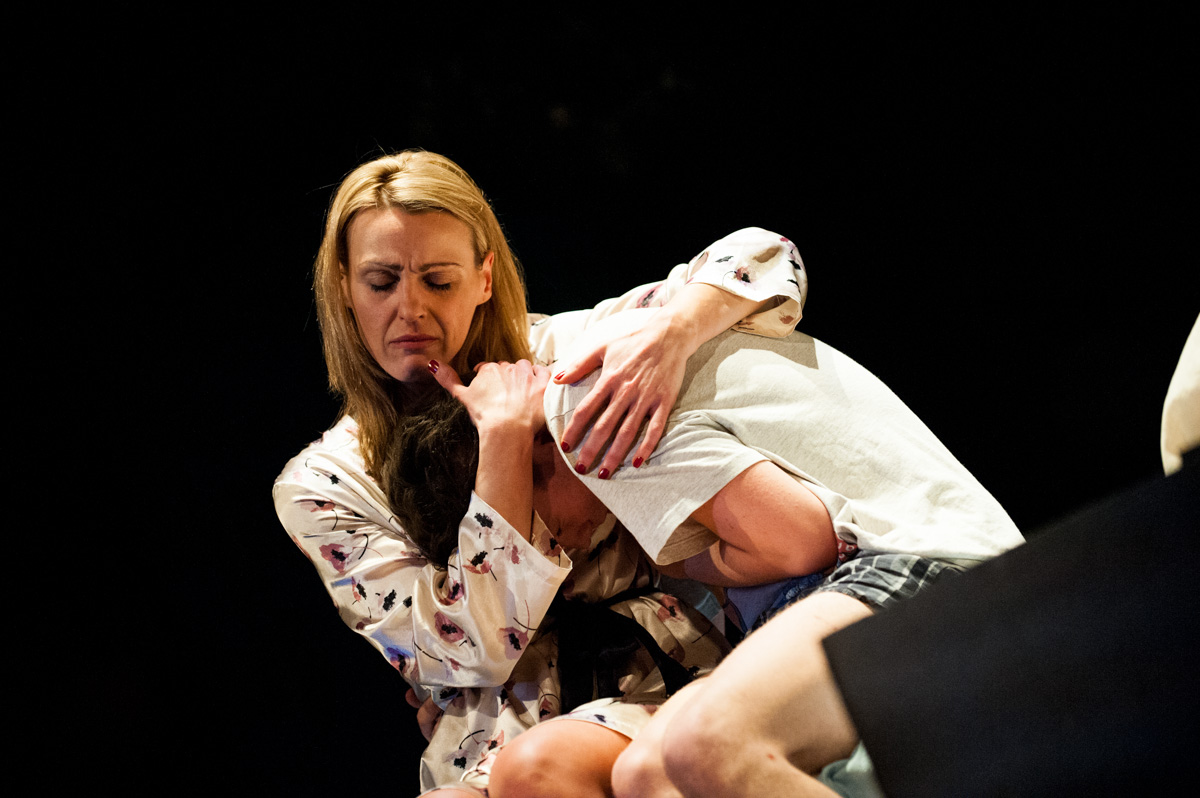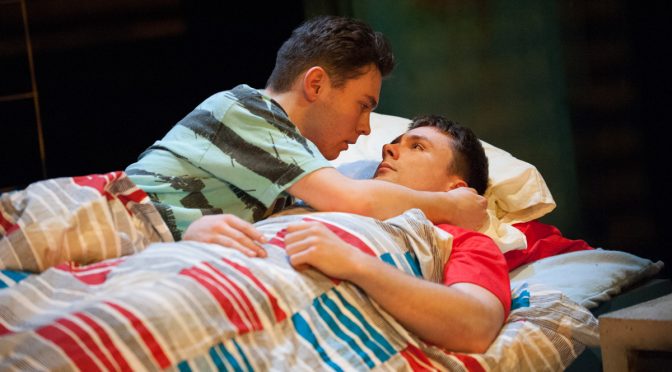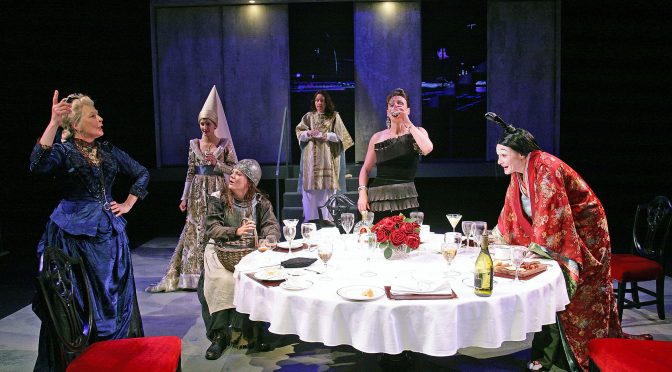Jonathan Harvey’s iconic gay coming-of-age story, Beautiful Thing, celebrates its 20th anniversary with a new production at the Arts Theatre in Covent Garden. Despite some nostalgic nods, the play is as fresh as ever: a skilfully written comedy drama with fantastic roles and an admirably un-patronising focus on working-class life. Beautiful Thing touches on universal themes with a winning bravery.
The huge success of the play, and the subsequent 1996 film, create a special atmosphere with seemingly every audience member knowing every line. The jokes – of which there are plenty – are anticipated gleefully and the roars of laughter almost interrupt the action. Director Nikolai Foster gives the crowd what they want and his staging is a respectful affair. But it’s impressive to note his firm hand, with moments of quiet imposed as the relationship between the two young boys, Ste and Jamie, neighbours on a council estate in Thamesmead, blossoms into romance.

The superb Suranne Jones as Jamie’s mother shows the piece is as much about parental relationships as anything else. Playing the hard-nosed Sandra with skill, duelling with her neighbour Leah and dealing with her lover Tony (Zaraah Abrahams and Oliver Farnworth – both in fine form), Jones gives a tremendous emotional edge to the role. Through strong performances from Jake Davies and Danny-Boy Hatchard, Jamie and Ste’s shared fears about emotions and the future are presented as those of boys rather than men – an important point central to the play. Harvey’s writing and the skill of the young actors enhance the empathy and humour and ensure sure the play lives up to its title.
Until 25 May 2013
Photos by Mike Lidbetter
Written 18 April 2013 for The London Magazine


